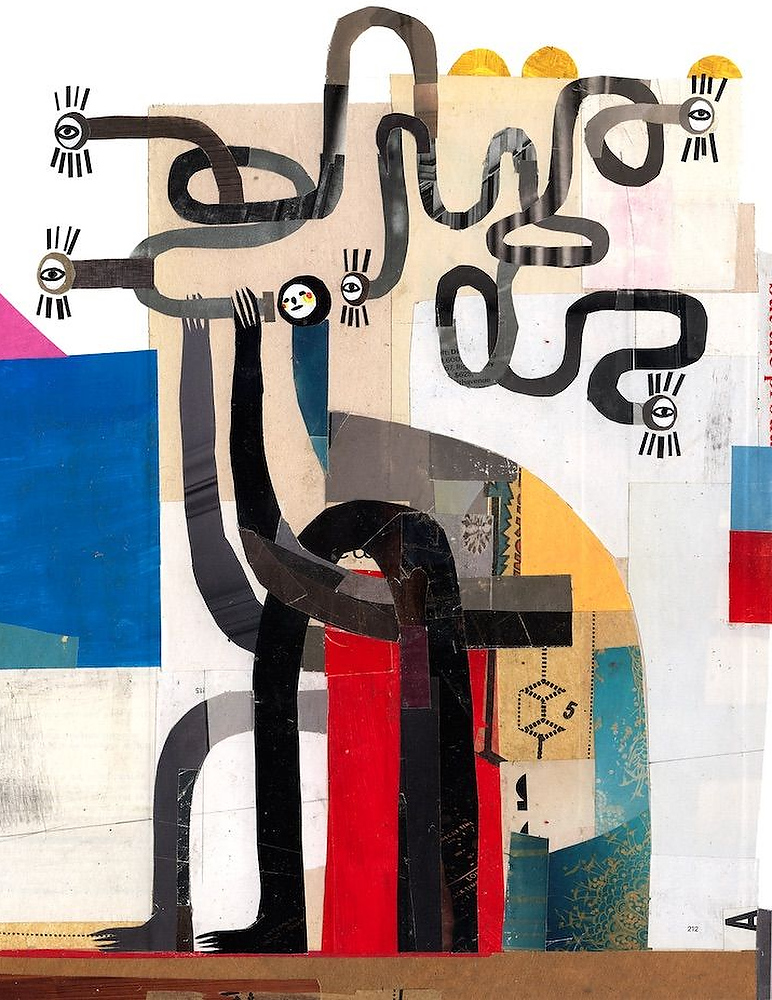
Telescope illustration by Gordon Wiebe
Kerry M. King (’85) asks how the past informed the future for these faculty members and what’s next for their fields.
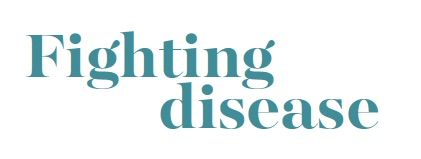
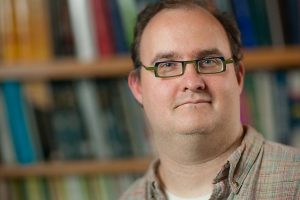 Freddie Salsbury
Freddie Salsbury
Associate Professor of Physics
Freddie Salsbury’s research uses physics-based computational tools in the modeling of proteins and nucleic acids to aid in the fight against disease.
Describe a moment when you knew your future was as a scholar.
At graduate school at Berkeley, I was doing mostly mathematical problems in research, but what really made me choose science was being embedded in an experimental laboratory. I remember being able to see possible, although rather distant, impacts of my theoretical research. Those experiences really are what sold me on becoming a scientist.
What’s a breakthrough in your field that people might not know about but should?
In my area of computational biophysics, there are two technical advances that are allowing us to move further in detailed simulations of biomedically interesting molecular systems: gpu-computing and the increased application of statistics and statistical thinking to our data. The use of these graphics processing units (gpus), originally developed for video gaming, and the developing of programs to efficiently use them are allowing us to see molecular changes that we could only infer or force previously. Consequently, we have to deal with more and more data, transitioning us more into a “Big Data” field, forcing us to learn and use more advanced statistical tools. Borrowing more and more from statistics will be critical to further advances.
What in your field suggests that we should be optimistic about the future?
The increasingly trans-disciplinary nature of my field. Biophysics has always brought together molecular physics, physical chemistry and biology, but increasingly even more tools and expertise from physics, computer science and statistics are being brought to bear on biological problems. I am always blown away by the increasingly diverse expertise being brought into cancer biology. For example, at the Comprehensive Cancer Center (at Wake Forest Baptist Health), investigators with deep expertise in a wide variety of fields including chemistry, physics, biochemistry, statistics, cell biology, biomedical engineering, the social sciences and many medical fields, are coming together to address the problems of cancer.
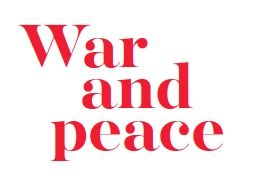
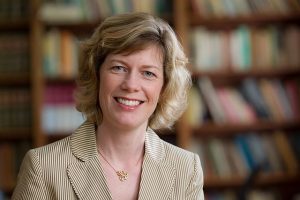 Sarah Lischer
Sarah Lischer
Associate Professor of Politics and International Affairs
Sarah Lischer focuses on the politics of refugee crises, civil wars and human rights atrocities. She is the author of “Dangerous Sanctuaries: Refugee Camps, Civil War, and the Dilemmas of Humanitarian Aid.”
Describe a moment when you knew your future was as a scholar.
After university, I was living in eastern North Carolina and ended up as the coordinator for a small Episcopalian refugee resettlement organization. Welcoming the very first family that I helped resettle comes to mind as determining my future research field. The church sponsors and I had worked very hard to prepare for this family of Bosnian Muslims who had experienced persecution and torture. Knowing so little about them (and about Bosnia) we had stocked a little apartment with donated furniture and clothes and filled the refrigerator with food we hoped they would find palatable. Eventually the plane landed and a tired and dazed family emerged to a homemade welcome sign, a bouquet for the mother and teddy bears for the children. This is the moment I try to remember when I’m engaged in scholarly research about desperate Syrians, Iraqis and Afghans.
What’s a breakthrough in your field that people might not know about but should?
The media like to explain wars, such as those in the Middle East, as an almost inevitable result of age-old animosities based on unchangeable factors like religion and ethnicity. This gives American leaders, and regular people, the comforting idea that there is really not that much we could do to stop the killing, even if we wanted to get involved. Research on the politics of civil wars tells us otherwise. Most conflicts like Syria, Afghanistan and Iraq do not stem from ancient blood lusts, but from poor governance, weak institutions, economic inequality and insecurity. Those factors encourage the development of demagogic leaders, terrorist groups and organized crime. Rather than waiting until a conflict becomes bloody and intractable, research shows the positive payoff of early investments in supporting democratic institutions and ameliorating economic inequality.
What in your field suggests that we should be optimistic about the future?
I have conducted field research in a lot of places where optimism is in short supply, including Rwanda, Cambodia and Bosnia. The people in these countries struggle with a past more horrific than most of us can imagine, and they survive in a present that includes poverty, corruption and injustice. My optimism comes from the small, unheralded groups and individuals who work for a better future against the still-strong forces of division. I have observed war veterans from the three combatant groups in Bosnia — Muslim, Serb and Croat — who have learned, often painfully, to share stories and compassion for each other’s suffering. In Rwanda, I talked with a Tutsi pastor who survived the genocide and who risked arrest by preaching the common humanity of victims and perpetrators. As a scholar who focuses on human rights, refugees, civil wars and humanitarian crises, I find optimism for the future comes in small, but meaningful, doses.
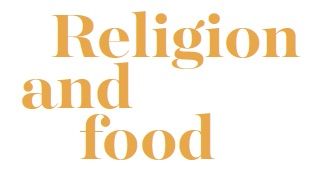
 Derek Hicks
Derek Hicks
Assistant Professor of Religion and Culture, School of Divinity
Derek Hicks researches African-American religion, religion in North America and religion and foodways.
Describe a moment when you knew your future was as a scholar.
My scholarship begins with tragic loss. In 1996 two close friends were murdered in the same week. Both of them killed in our neighborhood. Neither of them would reach their 27th birthday. What struck me in both incidents was the way in which faith tempered the blow of loss. Both were first born sons of doting mothers. Yet, in the face of the senseless violence that had struck their families, these mothers would inspire our community. One would tell me that her faith in God was strengthened with the loss of her son. This made no sense to me then but would push and encourage me to inquire into the nature of African-American religious experience. I wanted to more fully understand how a people who had historically faced dire odds would, through faith, overcome.
I have been driven by the unshaken spirit of these mothers and the memory of their sons when facing my own challenges. Through my scholarship I have sought to articulate the multiple ways religion has therapeutically healed and empowered a wounded people to push back and demand better life options.
What’s a breakthrough in your field that people might not know about but should?
My current work details the convergence of religious culture and culinary culture in African-American life. I mark both religion and foodways as potent cultural productions in black life that grew out of the experiences of enslavement. Taken together, they have served as tools to mitigate suffering in the face of oppression. While much has been said and studied about religion and food individually, no one has considered the importance of religion and food in their interconnectedness.
What in your field suggests that we should be optimistic about the future?
The study of religion among communities of people will remain critically important. One need only consider the role religion plays in our country’s political atmosphere to see why we must have a better understanding of people’s faiths. I am convinced that a better understanding will result in more fruitful intercultural and religious dialogue.

 Hana Brown
Hana Brown
Associate Professor of Sociology
Hana Brown’s research examines the relationship between politics, the state and social inequality.
Describe a moment when you knew your future was as a scholar.
Between college and graduate school I worked for a small NGO in Tanzania doing education development. Up until then, I’d always imagined myself working in international relief, but dealing through the challenges of aid work in sub-Saharan Africa convinced me how useful sociological research is for the world and for our efforts to change it.
What’s a breakthrough in your field that people might not know about but should?
Despite widespread beliefs that Latino immigrants stand outside the U.S. mainstream, there is ample sociological evidence to show that today’s immigrants are incorporating into U.S. society at the same rate, if not faster, than previous generations of immigrants. We see these gains in multiple areas: English language acquisition, social relationships and economic mobility, just to name a few. These trends are important to consider as we weigh various immigration policy and social services initiatives. Much of our current national debate is based on faulty assumptions about immigrants, assumptions that aren’t supported by the data.
What in your field suggests that we should be optimistic about the future?
National news today is filled with stories about the growing wealth gap in the U.S. It’s certainly true that inequality is growing in this country, but what most people don’t know is that global inequality is at its lowest levels since the Industrial Revolution. Furthermore, global inequality is decreasing because incomes are rising in much of the world. With rising income generally come improvements in health, education and other social outcomes, so these trends may signal positive shifts in the future across much of the developing world.

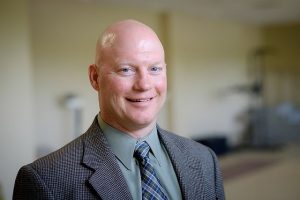 Jeffrey Katula
Jeffrey Katula
Associate Professor of Health and Exercise Science
Executive Director, HELPS (Healthy Exercise and Lifestyle ProgramS)
Jeffrey Katula studies the relationship between human behavior and chronic disease and disability, and the prevention and management of Type II diabetes, mobility disability, cognitive functioning and quality of life in older adults. He received the University’s Award for Excellence in Research last February.
Describe a moment when you knew your future was as a scholar.
I have always been a bit curious and asked a lot of questions in elementary and high school. Additionally, as a first-generation college student, I was quite ignorant to graduate school, the research world or what “scholar” meant. As I was pursuing my master’s degree in counseling psychology, my main objective was to work with athletes to improve performance (i.e., sports psychology and performance enhancement). A sports psychologist informed me that there were approximately three people in the U.S. earning a living as sports psychologists at the time. At that moment I knew that I would need to change direction and focus on research. In fact, I completely changed from studying athletic performance to studying health behavior and chronic disease.
What’s a breakthrough in your field that people might not know about but should?
Rather than a breakthrough per se, I think the merging of diverse fields represents significant advances in our understanding of human behavior and health. More specifically, researchers have recently begun merging advanced Western neuroscience methods with Eastern contemplative methods and interpersonal communication to elucidate extremely complex relationships among brain networks, human consciousness and interpersonal development that underlay behavior and functioning. In general, the findings have been extremely exciting and have profound implications for health psychology and, potentially, all of science.
What in your field suggests that we should be optimistic about the future?
Thanks to federal legislation, the culture of health has changed dramatically in the last 25 years. More people than ever before are more conscious of their health, particularly their health behavior, such as smoking, nutrition and physical activity. The exploding market for activity trackers (e.g., Fitbits) and other health-related biometric tracking (e.g., iPhone, Apple Watch, etc.) indicates that the public is extremely interested in and conscious of health. Finally, we have witnessed a dramatic change in focus in the biomedical research enterprise from acute treatment to chronic disease and disablement, which have large behavioral components. Every indication is that these trends will continue to grow in upcoming years.

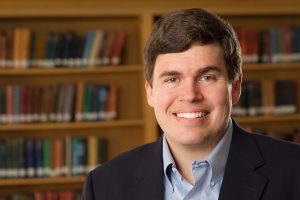 Christian Miller
Christian Miller
Professor of Philosophy
Christian Miller is philosophy director of The Beacon Project, a multiyear initiative to understand the morally exceptional and how to improve moral character, and director of The Character Project. He received the Kulynych Family Omicron Delta Kappa Award in 2014 for contributions to student life outside the classroom.
Describe a moment when you knew your future was as a scholar.
My love of philosophy was first kindled in high school. Starting in the summer after my junior year, I began taking courses at my local college. Because I was reading C.S. Lewis at the time, I decided to give philosophy a try. There I encountered one of the most influential teachers in my life, Dr. Bible (yes, that was his real name!). I absolutely loved the readings, the arguments and most of all, the big ideas. I took three courses with Dr. Bible, majored in philosophy at Princeton and never looked back. Does God exist? What is the meaning of life? Who am I? The thought of making a living thinking about these questions, and talking about them with students, was simply too good to pass up.
What’s a breakthrough in your field that people might not know about but should?
There is an impression that philosophy has bought into postmodern thinking and has abandoned the idea that there is an objective reality, objective truth and objective morality. According to this impression, philosophers are supposed to have accepted the idea that human beings construct all of reality, that truth is only relative, and that morality is just an invention of different cultures or societies.
But in fact most philosophers in America would not recognize this characterization at all. We overwhelmingly accept that there is an objective reality, objective truth and objective morality. Much of our efforts are focused on better understanding them. For example, does the objective morality depend upon God, does it just exist on its own, does it derive from nature, or some other option?
What in your field suggests that we should be optimistic about the future?
During the past 30 years, there has been a huge surge of interest in character in philosophy. Particular attention has been paid to how we might become people of better character. Drawing on research in psychology in particular, philosophers are coming up with important ideas for character improvement, and these ideas are being taken seriously in the larger culture (as we can see, for instance, with David Brooks’ recent book, “The Road to Character”).
There is a lot of excitement about empathy these days. Thanks to the research of the psychologist Daniel Batson, we now know that feeling empathy increases our helpfulness, and (what is really exciting) it does so for genuinely selfless reasons. The days where people thought we only act out of our own self-interest are now behind us. This empathy research can be incorporated into thinking about how to become more compassionate people, and practical strategies can be devised for trying to enhance empathy and compassion in the classroom, home, office and so forth. This makes me feel a bit more optimistic about the future.
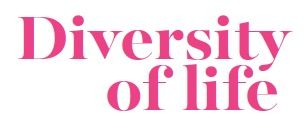
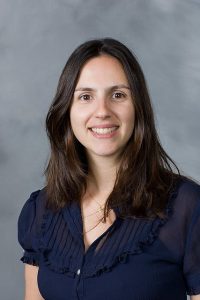 Patricia Dos Santos
Patricia Dos Santos
Associate Professor of Chemistry
Patricia Dos Santos is director of graduate studies in the chemistry department. She received the University’s Award for Excellence in Research in 2013.
Describe a moment when you knew your future was as a scholar.
I first started performing research as an undergraduate, and I think this experience has provided me the excitement for the discovery process and fascination for understanding biological processes at the molecular level. Later the experiences I had during my Ph.D. and postdoctoral instilled in me the motivation to pursue a scientific career in an academic setting.
What’s a breakthrough in your field that people might not know about but should?
The work of my research team is relevant to understanding biochemical reactions essential for life on Earth. The interesting aspect of this field is that, while most forms of life utilize nearly identical cofactors and vitamins, the chemical strategies involving the synthesis of these molecules are distinct across different domains of life. It is fascinating that life has evolved in different ways to make the same molecule.
What in your field suggests that we should be optimistic about the future?
We are experiencing a very exciting moment in microbial biochemistry. The recent advances in genome sequencing and rapid progress of microbiome projects have led investigators to start uncovering the amazing diversity of bacteria across different environments. We have grasped just a small fraction of the importance of microbes in human health. This field of science is in its infancy. Recent studies have shown that microbes inhabiting our body are important for our digestion, immune system, cognition, reaction to allergen, drugs and physical function, among many other aspects of the human body. This is extremely important as throughout several decades the indiscriminate use of antibiotics has not only led to an increase in the number of infections caused by antibiotic-resistant bacteria, but also to the rapid emergence of diseases proposed to be associated with the elimination of certain types of “good” bacteria from our body.

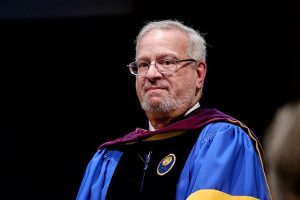 David Levy
David Levy
Professor of Music and Program Director, Flow House, Vienna
David Levy has published widely in his field with a special focus on the music of Ludwig van Beethoven and is the author of “Beethoven: The Ninth Symphony.” He received the Donald O. Schoonmaker Faculty Award for Community Service last February.
Describe a moment when you knew your future was as a scholar.
I knew during sophomore year of college that research into music-historical issues was more compelling than practicing the violin eight hours a day. I spent most of my time in the library reading, studying musical scores and taking more courses in music history.
What’s a breakthrough in your field that people might not know about but should?
As a scholar in Beethoven studies, the most exciting breakthrough in recent years was the discovery of the long-lost autograph manuscript of Beethoven’s transcription for piano four-hands of his “Grosse Fuge,” Op. 134, which lay hidden in a locker in the basement of a theological seminary near Philadelphia. Also exciting has been the issuance of facsimiles and transcriptions of some of Beethoven’s sketchbooks. These documents shed important light on his compositional process, often revealing that preliminary ideas for later compositions had their origin much earlier than expected.
What in your field suggests that we should be optimistic about the future?
Humans always have, and always will be, drawn to music of all kinds. The field of musicology helps shed light on why this is so. This is important because music reflects the gamut of human experience. What sets us apart from other species is our urge to create, showing that we exist not merely to survive and procreate, but to express something more deeply embedded in our psyche. That we continue to create music is itself an optimistic act.


